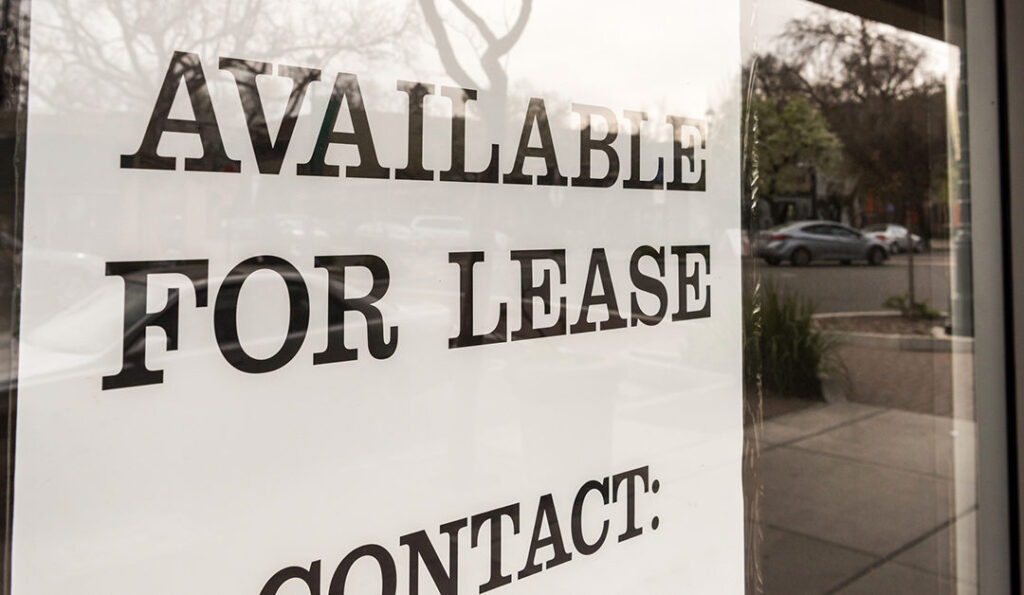Signing a letter of intent is an important milestone on the path to negotiating a retail lease.
The LOI is a nonbinding agreement that puts businesses and landlords on the same page before either party signs the more-detailed—and legally binding—retail lease.
Equity Retail Brokers routinely negotiates letters of intent on behalf of clients ranging from mom-and-pop operators, to major retail and restaurant chains, to private and institutional landlords.
WHAT’S IN A LETTER OF INTENT?
A retail letter of intent spells out key terms that will eventually be memorialized in the lease. LOI documents are typically three to four pages, but they can be longer for national tenants or landlords that want more details worked out prior to the lease negotiation.
Expect the LOI to cover the rental rate, the length of the lease term, renewal options, and extra expenses such as triple net charges (the tenant’s pro rata share of the landlord’s costs for common area maintenance, property taxes and insurance).
In addition, important negotiating points such as use and exclusives clauses; assignment and subletting permissions/restrictions; and the nature of the tenant’s financial guarantees to the landlord are hammered out in the LOI.
MOVING FORWARD WITH LOI
When you’ve worked with your broker to confirm that the space in question is a good fit, it’s time to move forward with the LOI. (For an overview of important site-selection criteria, see our three-part series “How to Find a Retail Store for Rent.”)
Naturally, the landlord also needs to have confidence that your concept will work at the center. During the LOI stage, you’ll work with your broker to give the landlord key details about your concept, creditworthiness (including credit checks) and overall plans.
Once the LOI has been signed, you’ll want your real estate attorney to negotiate the actual lease.
FINANCIAL GUARANTEES IN RETAIL LEASE NEGOTIATION

All negotiating points in a retail LOI require careful attention, but this is especially true of the financial guarantee that the tenant makes to the landlord.
Imagine that you’re a restaurateur preparing to sign a 5-year lease for your first location in a market. The landlord may ask you to personally guarantee that you will pay all of the rent for the entirety of that lease term.
Through your broker, you may answer back with an offer to pay just one year of rent if your business ceases operating (the industry jargon for this arrangement is “one-year rolling”).
It’s possible that the end result of the LOI negotiation will be something more in the middle, such as a three-year guarantee. The job of the brokers is to find such balancing points—those places where both landlords and tenants see the terms as workable. (This isn’t to say that a five-year, full guarantee couldn’t be viable: Landlords will typically give you better rent and/or other incentives in exchange for such agreements.)
Another key point of the negotiation hinges on precisely who will provide that guarantee. Let’s say the would-be tenant is a husband-and-wife team that owns three restaurants. If the guarantee applies to their umbrella LLC for those businesses, then the landlord will have recourse to the LLC’s assets (all three restaurants and related collateral) in the event of a default on rent.
If the husband and wife decide instead to provide a personal guarantee, then technically their personal assets (down to houses and cars) will serve as collateral.
The happier the landlord is with the tenant’s guarantee, the better the terms the tenant will receive in the deal. However, it’s critically important to protect yourself as well. Again, your broker can help you strike the right balance.
THE ROLE OF DELIVERY CONDITIONS IN RETAIL LETTERS OF INTENT
Stipulations in the letter of intent will also determine how the space will look when the landlord hands over the keys. If it’s second-generation space, you may want to retain some of the improvements made by the prior lessee.
But if the HVAC system is too weak or old, or the bathrooms fail to comply with ADA regulations, your budget to construct the space will need to reflect the cost of that extra work. If the retailer is in high demand, the landlord may be willing to either provide the necessary upgrades or give you the money (i.e., a tenant improvement allowance) to build out the space, over and above removing any unwanted improvements left over from the prior occupant.
There are a lot of moving parts to negotiations on delivery conditions. Some tenants may want to take the space “as is” to get a better deal on the rent and handle the improvements through a trusted contractor.
Typical options include requesting a “vanilla shell” delivery (which includes certain basic finishing work) or asking for a vanilla shell plus additional work on your buildout that makes life a bit easier on you when taking possession of the space. Keep in mind, though, that there is a direct correlation between the amount of money spent by the landlord and the rental rate it expects to receive.
As a tenant, it’s particularly important to balance your aspirations for buildout with the need to maintain enough capital to make your business a success. Brokers know the steps in this dance and can guide you through this process.
PROTECTING YOURSELF IN THE LOI: THE USE AND EXCLUSIVES CLAUSE

The use and exclusives clause can be among the more time-consuming to negotiate in the LOI, which is as it should be, given its importance.
Broadly speaking, the “use” is just the primary purpose of the business—for example, to sell pizza for dine-in and takeout.
Exclusives can be tougher to secure in your lease. Let’s say you want to run a pizza restaurant or coffee shop. Your inclination may be to ask the landlord to disallow any other tenant with the same “primary use.” Frequently sought by national operators, such arrangements can be protective, but there are some caveats.
For example, tenants that are already leasing space at that center will not typically be subject to exclusives restrictions granted to newly arrived operators. And while the landlord may agree not to sign another operator with the same primary use as your coffee shop or pizza restaurant, that’s not the same thing as an across-the-board exclusive on coffee or pizza.
That’s because the likes of Applebee’s Grill + Bar need to be able to sell coffee with dessert or mini-pizzas to kids.
In all likelihood, the negotiation here will hinge on percentages: Maybe no other business in the center can make more than 10 or 15 percent of its total revenues from coffee or pizza.
Coveted, traffic-driving chains with strong credit can be aggressive with respect to the use and exclusives clause. Potentially, the presence of such operators at the property could mean that your business is constrained in certain ways. Make sure your broker finds out exactly what’s in the use and exclusives clauses of other operators at the property.
ASSIGNMENT AND SUBLETTING IN A RETAIL LOI
Franchisees and other operators may at some point want to sublet or assign the lease to another operator. Landlords often object to this unless certain parameters are in place.
Credit tops their lists of concerns. Let’s say that the net worth of the franchisee is $750,000. As a source of financial protection, the landlord may want to stipulate that any operator who takes over that lease must have assets of equal or greater value. And in some cases, they may want the original tenant to still have some financial responsibility for a period of time in case the new operator fails.
Be sure to discuss with your broker the degree of flexibility you may need with respect to assignment and subletting.
A FINAL WORD ON INCENTIVES IN LOI NEGOTIATIONS
The inclinations, training and incentives of both your tenant rep broker and your real estate attorney can be a significant factor in the negotiation of the letter of intent.
There are many good, experienced deal-making attorneys, and in some cases retail tenants may choose to bring in their lawyers early in the process at the LOI stage.
On the other hand, many retailers find it more cost-effective to bring in their attorneys toward the end of the process—when it’s time for the actual lease negotiation.
The understanding here is that good brokers know when landlord “asks” are fair and reasonable and when they should be contested. Experience enables brokers to move LOI negotiations forward at the right pace. The retailer’s attorney then rounds out the process by diving into the specific, legally binding language that will be agreed to by both parties.
As a final word, it’s important for retailers to take care in choosing their tenant rep brokers. You want to avoid those who aim to close the deal at all costs, merely to get the commission. At Equity Retail Brokers, we care deeply about your long-term success. If, in our opinion, it’s time to walk away, we won’t hesitate to tell you.
Our philosophy is that good brokers don’t just do deals—they do good deals. Call it enlightened self-interest. We understand that if you are enjoying success as a result of a real estate decision you made with us, you’ll hire us again when you’re ready to take your business to the next level.
